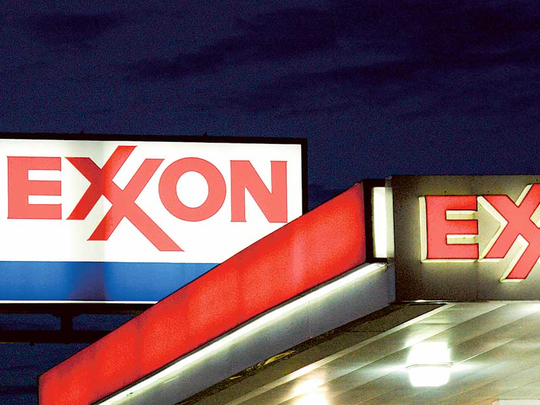
New York, Chicago: Exxon Mobil Corp.’s accounting has prompted a US Securities and Exchange Commission investigation into whether the energy giant should have written down assets as a result of the oil slump, according to a person with knowledge of the matter.
The SEC is the latest government body to question why the world’s largest energy explorer by market value has been immune from the multi-billion dollar writedowns that have afflicted rival oil and natural gas producers. World crude prices have tumbled 60 per cent since mid 2014 as a glut of supplies from Texas to Russia to the Arabian Gulf slammed into a slowdown in demand growth in major markets such as China.
New York Attorney General Eric Schneiderman and other states including Massachusetts have been conducting similar probes since last year. The inquiries stem from larger questions about whether Exxon has for decades failed to alert investors about potential climate-change risks for a company with annual sales that could rival the world’s top 50 national economies.
Not material
“We still do not expect it to have a material impact in the longer term,” said Brian Youngberg, an analyst at Edward Jones & Co. in St Louis. “Non-cash impairment charges tend to have little impact on share prices because investors realise impairments do not actually change the potential for the oil or natural gas to be produced some day.”
Exxon shares fell 1.5 per cent to $82.54 (Dh303) at the close in New York on Tuesday, wiping out more than $5 billion in market value.
“The SEC is the appropriate entity to examine issues related to impairment, reserves and other communications important to investors,” Alan Jeffers, an Exxon spokesman, said in an emailed statement. “We are fully complying with the SEC request for information and are confident our financial reporting meets all legal and accounting requirements.”
Last week, a spokesman said the company hasn’t written down the value of its oil and gasfields because Exxon expects them to yield value over the long term. The company first began including statements about business risks associated with climate change in its SEC filings in 2007.
Judy Burns, an SEC spokeswoman, declined to comment.
Climate crisis
“Right now Exxon is betting everything it has on the failure of the world to solve the climate crisis,” said Annie Leonard, executive director of environmental advocacy group Greenpeace. “The SEC has a chance to expose how weak Exxon’s hand really is.”
The SEC asked Exxon in September 2013 why the company hadn’t conducted an asset-impairment review amid plunging natural gas prices. Exxon responded that no assessment was necessary, based on the strength of its future cash flow projections. The SEC didn’t pursue the issue further, correspondence posted on the agency’s website showed.
The Wall Street Journal earlier on Tuesday reported on the SEC inquiry.
— Bloomberg












